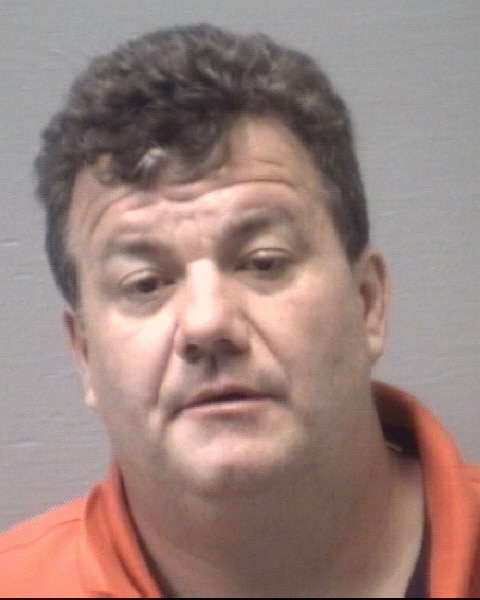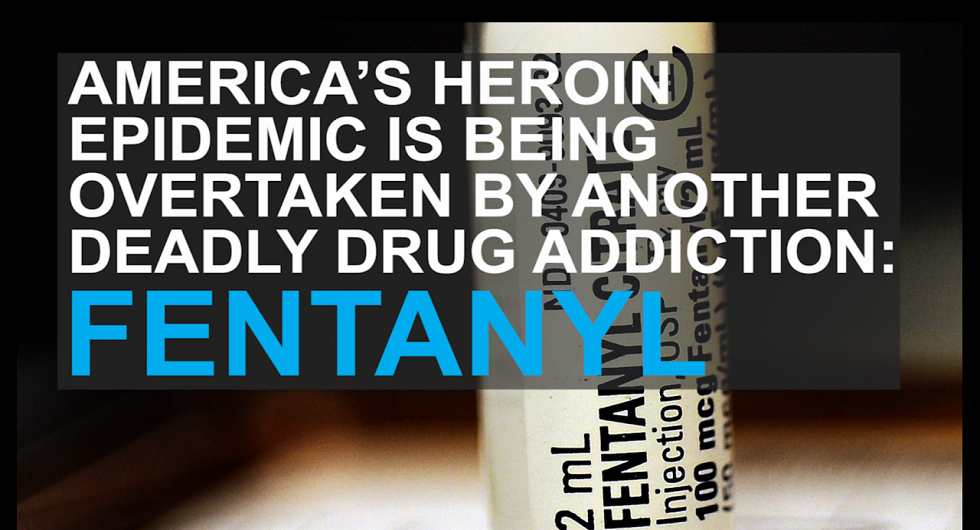Darknet Fentanyl Dealer Indicted in Nationwide Undercover Operation
Undercover Operation Results in Numerous Charges and Convictions of Opioid Distributors
"Darknet is an umbrella term describing the portions of the Internet purposefully not open to public view or hidden networks whose architecture is superimposed on that of the Internet. " Darknet" is often associated with the encrypted part of the Internet called Tor network where illicit trading takes place such as the infamous online drug bazaar called Silk Road." - National Association of Chiefs of Police.

On Friday, the U.S. Attorney for the Northern District of Texas announced the indictment of a darknet drug dealer who has been indicted for leveraging Bitcoin’s apparent anonymity to sell fentanyl online. The charges against him are the result of the first nationwide undercover operation targeting darknet vendors that the Justice Department announced in June 2018.

Sean Shaughnessy, 51, of the Dallas Fort Worth, Texas area, was charged by federal grand jury with conspiracy to possess with intent to distribute controlled substances, distribution of a controlled substance, distribution of a controlled substance analogue and eight counts of money laundering.
“Darknet dealers often believe that by using bitcoin, they can evade authorities. This prosecution proves that’s not the case,” said U.S. Attorney Nealy Cox. “We will continue to pursue anyone peddling this deadly drug — on the streets or online.”
According to an ICE press statement, which was unsealed on May 24 following the defendant’s initial appearance, Mr. Shaughnessy allegedly sold fentanyl and fentanyl analogues over the dark web, an unindexed portion of the internet accessible only via specialized software that allows users to conduct transactions with relative anonymity. His buyers purchased the fentanyl and fentanyl analogues, which was shipped to their addresses, using cryptocurrencies like Bitcoin, the indictment alleges.
One user, who allegedly purchased a fentanyl analogue from Mr. Shaughnessy, overdosed on the substance and died. Mr. Shaughnessy allegedly transferred his Bitcoin proceeds to other cryptocurrency wallets in exchange for regular fiat currency, which was shipped to his home in Dallas. Unbeknownst to Mr. Shaughnessy, he sent more than $120,000 bitcoin to wallet addresses controlled by federal agents. Yesterday, he was ordered to remain in federal custody.
The investigation into Sean Shaughnessy was part of Operation Dark Gold, a year-long, coordinated national operation that used the first nationwide undercover action to target vendors of illicit goods on the darknet.
Special agents of the U.S. Immigration and Customs Enforcement’s Homeland Security Investigations (HSI) New York Field Office posed as a money launderer on darknet market sites, exchanging U.S. currency for virtual currency. Through this operation, HSI New York was able to identify numerous vendors of illicit goods, leading to the opening of more than 90 active cases around the country, including the investigation into Mr. Shaughnessy in the Northern District of Texas.
“Our significant domestic and international HSI resources and expertise, along with the considerable resources of our law enforcement partners, provided an unbeatable team to investigate this fentanyl smuggling operation so that we could effect this indictment,” said Katherine Greer, Acting Special Agent in Charge of HSI Dallas. “This deadly drug – combined with the secrecy of bitcoin currency – represent a significant danger to an already-devastating national opioid epidemic.”

The Money Laundering and Asset Recovery Section (MLARS) of the Department of Justice’s Criminal Division, coordinated with law enforcement and federal prosecutors from more than 50 U.S. Attorney’s Offices to investigate 65 targets identified by the undercover operation, which led to the arrest and impending prosecution of more than 30 darknet vendors.
One year after 70 search warrants were executed in May 2018, numerous opioid and narcotics distributors have been charged and convicted around the country, according to DOJ officials. Those include:
- Brian Gutierrez-Villasenor, 27, of San Francisco, California, was sentenced recently to serve 120 months in prison for possessing with the intent to distribute methamphetamine and transporting funds to promote unlawful activity. Gutierrez-Villasenor was charged by the U.S. Attorney’s Office for the Northern District of California. According to his guilty plea, between 2014 and May of 2018, Gutierrez-Villasenor distributed cocaine and methamphetamine for a darknet vendor site called “JetSetLife.” In addition to the prison term, Gutierrez-Villasenor was ordered to pay a $40,000 fine and to serve an additional five-year term of supervised release to begin after his prison term. Gutierrez-Villasenor has been in custody since his arrest on May 17, 2018, and is serving his prison sentence.
- John Edward Monette, 50, of Sioux Falls, South Dakota, was sentenced to serve five years in prison, followed by three years of supervised release. Monette was convicted of conspiracy to distribute a controlled substance on Nov. 15, 2018. On April 25, 2018, a federal search warrant was executed on Monette’s residence as part of Operation Dark Gold. Law enforcement officers seized approximately 838 grams of MDMA, numerous ecstasy pills, approximately 69 grams of cocaine, drug packaging, scales, shipping materials, computers, cell phones and a rifle. Also seized were 3.3882104 bitcoin (approximate value $32,464.38) from a Mycelium wallet on Monette’s cell phone. Monette had been buying MDMA and other controlled substances from sellers in Europe and elsewhere via the dark web. He used Bitcoin to pay his suppliers, and received the drugs via mail. He also used the mail to deliver drugs to his customers.
- Ryan Farace, 34, of Reisterstown, Maryland, and Robert Swain, 34, of Freeland, Maryland, were charged by the U.S Attorney’s Office for the District of Maryland. Farace was sentenced to serve 57 months in prison, followed by three years of supervised release, for drug distribution and money laundering conspiracies. The charges arose from a scheme to manufacture and distribute Alprazolam, or “Xanax,” through sales on the darknet in exchange for Bitcoin. Farace and his co-conspirator, Robert Swain, laundered the drug proceeds through financial transactions designed to conceal the source and ownership of the illegal funds. Farace was ordered to forfeit a money judgment equal to $5,665,000 and 4,000 bitcoin (currently worth approximately $3.2 million). Farace was also ordered to forfeit assets seized by law enforcement during the execution of search warrants in 2018, at locations associated with the conspiracies, including approximately $1.5 million in cash, 1.100 bitcoin and approximately $2.5 million in computer equipment. Robert Swain previously pleaded guilty to the money laundering conspiracy and faces a maximum statutory sentence of 20 years in prison at his sentencing on June 18.
- Tyler Lee Ward, 35, of Moody, Alabama, and Henry Long Nguyen, 33, of Birmingham, Alabama, pleaded guilty in the Northern District of Alabama to three counts including conspiracy to manufacture, distribute, and possess with intent to distribute Alprazolam; maintaining a drug-involved premises; and conspiracy to commit money laundering. Ward was sentenced to serve 24 months in prison and Nguyen was sentenced to serve 30 months in prison. Both Ward and Nguyen were ordered to forfeit numerous assets, including more than $200,000 in cryptocurrency. Joseph William Davis 26, of Madison, Alabama, pleaded guilty to conspiracy to distribute Alprazolam and was sentenced to serve 126 months in prison.
- Sam Bent, 32, of St. Johnsbury, Vermont (and formerly of East Burke, Vermont), and his cousin, Djeneba Bent, 26, also of St. Johnsbury (and formerly East Burke) were both charged by the U.S. Attorney’s Office for the District of Vermont. They both pleaded guilty to conspiracy to distribute controlled substances. Sam Bent also pleaded guilty to three counts of money laundering and agreed to a forfeiture money judgment. As part of his plea agreement, Sam Bent admitted that he set up accounts on dark web marketplaces, established online identities, accepted Bitcoin in exchange for sales over the dark web, and mailed controlled substances from several different post offices in Northeastern Vermont and Northwestern New Hampshire in an effort to avoid detection. Their sentencings are currently scheduled for July 2019.
- Kyle Lindemann, 31, of Birmingham, Michigan, was charged by the U.S. Attorney’s Office for the Eastern District of Michigan, and pleaded guilty to one count of possession with intent to distribute MDMA. As part of his plea, Lindemann admitted that he had managed a vendor account on the darknet marketplace known as “Dream Market,” on which he sold Alprazolam (Xanax), Adderall, Ecstasy (MDMA), and GHB. Lindemann also agreed to the forfeiture of 4.430550289998 Monero and 39.17488 MilliBitcoin that were seized during Operation Dark Gold, in May 2018.


